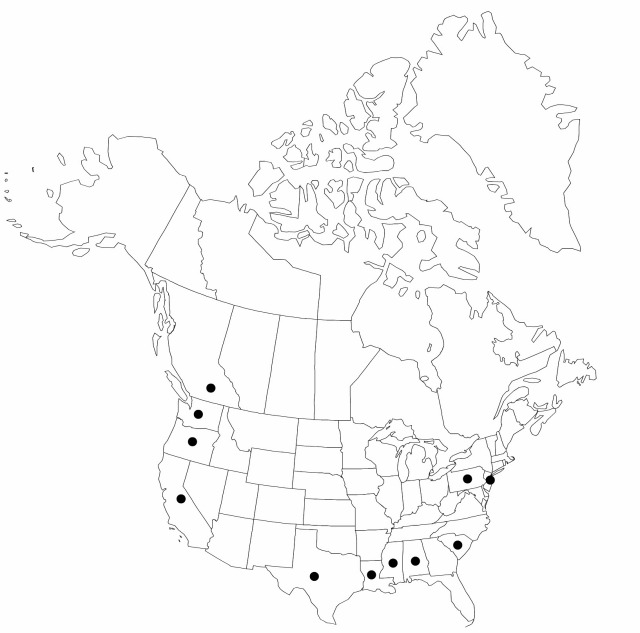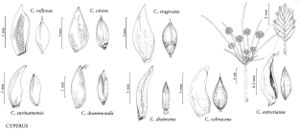Difference between revisions of "Cyperus eragrostis"
in J. Lamarck and J. Poiret, Tabl. Encycl. 1: 146. 1791.
FNA>Volume Importer |
FNA>Volume Importer |
(No difference)
| |
Revision as of 21:06, 16 December 2019
Herbs, perennial, cespitose, rhizomatous. Culms trigonous to terete, (25–)40–60(–90) cm, glabrous. Leaves flat or V-shaped, (10–)25–50 cm × 5–8(–12) mm. Inflorescences: heads globose, (10–)20–40 mm diam.; rays (0–)3–10, 2.5–5(–12) cm; 2d order rays usually absent (when present, 0.5–1.5 cm); bracts 4–8, horizontal to ascending at 15–30°, flat (or V-shaped), 3–30(–50) cm × 1.5–8(–12) mm. Spikelets (20–)30–50(–70), oblong, compressed, 5–20 × 2.2–3 mm; floral scales (12–)20–30(–50), off-white to golden brown, basally 2-keeled, laterally ribless, ovate-deltate, 2–2.3 × 1–1.4 mm (declined 30–40º from rachilla). Flowers: stamen 1; anthers 1–1.2 mm; styles 1–1.2 mm; stigmas 0.5 mm. Achenes black or dark brown, stipitate, broadly ellipsoid, 1.2–1.4 × 0.5–0.6 mm, stipe to 0.1 mm, apex apiculate, beak 0.2–0.3 mm, surfaces puncticulate.
Phenology: Fruiting summer.
Habitat: Damp grasslands, roadsides ditches
Elevation: 0–200 m
Distribution

B.C., Ala., Calif., La., Miss., N.J., Oreg., Pa., S.C., Tex., Wash., South America, naturalized, Europe.
Discussion
The distributions of Cyperus eragrostis in British Columbia, Alabama, Pennsylvania, South Carolina, and Texas represent introduced populations.
Selected References
None.
